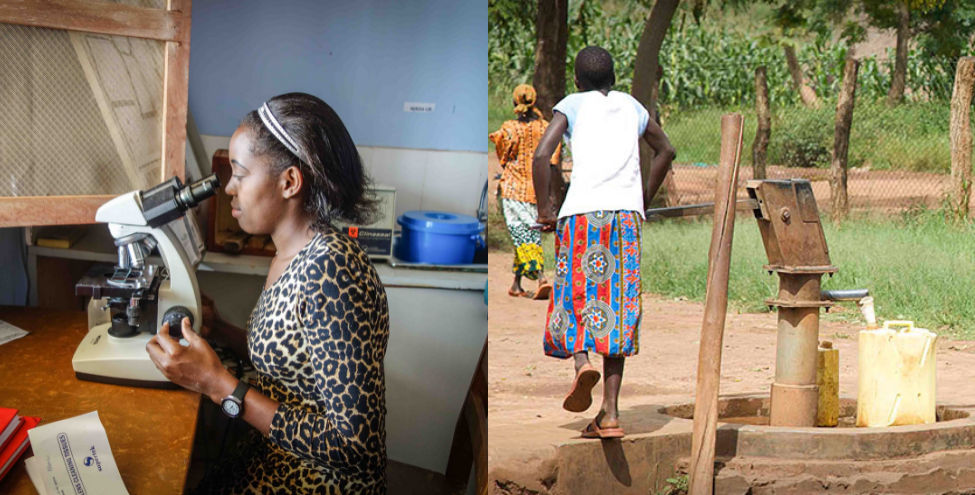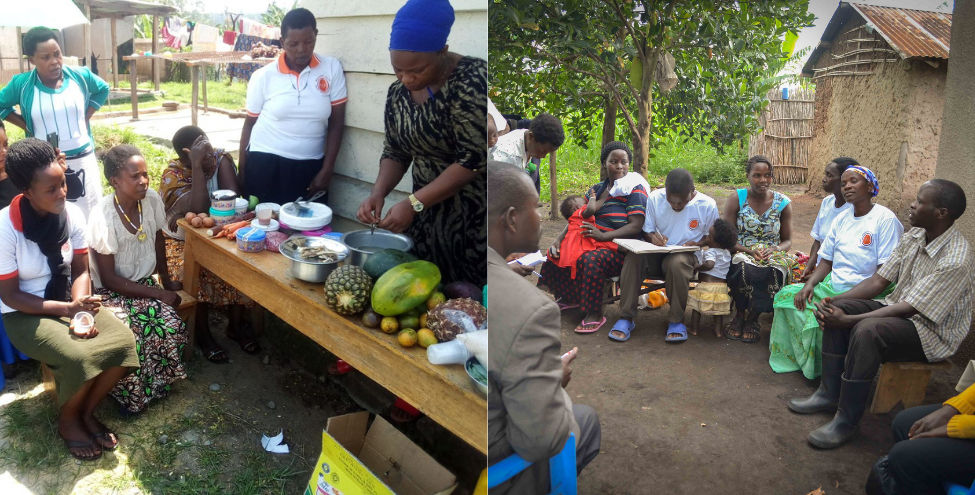J704N Maranatha Health: high quality care & healthy communities
Uganda, Africa
In partnership with Kamwenge Maranatha and Maranatha Health



The Situation
Maranatha Health believes all people everywhere deserve to be healthy, and to be able to access high quality, affordable health care. Maranatha Health’s project focusses on the holistic health and wellbeing of communities. Being aware of the limitations of direct service provision – both in terms of how wide the impact can be, and how sustainable it is – it is clear that treating the symptoms of ill health cannot create long-term change: it must be paired with preventing people from getting sick in the first place. Because of this, the project is primarily focused on capacity building: working with other clinics and health service providers in the region to improve their ability to deliver excellent health care (both curative and preventative) to Ugandans.
The Objectives
- Primary Health Care
Maranatha Health run a 35-bed pediatric clinic that provides comprehensive and life-saving treatments that are otherwise inaccessible to many children in Western Uganda. It also serves as a model clinic and training facility, providing a model for excellence in quality of care, health protocols and management systems.. The project offers in and outpatient care, antenatal care, immunisation and HIV clinics, along with laboratory facilities, an operating theatre and a pharmacy. The team of 37+ staff cares for about 1000 patients a month, and the most common conditions treated in children are malaria, diarrhoea, respiratory infections, burns and trauma.
Earning the trust of the local population is key to delivering these life-saving services. Many clinics deliver low quality services at a very high price, so this project shows people that high quality care can be delivered at a low cost. MH provide a consistently high standard of care and its services are very well received by the community. While meeting the direct healthcare needs of communities is very important, the kind of long-term change this project seeks to achieve comes from improving the broader health system and engaging with the systemic factors leading to poor health. For this reason, medical services have a significant focus on building the capacity of staff, who have often had inadequate training. MH has a Staff Scholarship Program to enable long-term staff to access vital professional development.
- Health System Strengthening
Maranatha Health is committed to achieving the best possible outcome for other Ugandan health clinics and their patients, and runs an innovative Capacity Building project. This project aims to address some of the underlying challenges in the wider health system, by enabling healthcare providers to deliver a much more effective, compassionate and sustainable service to their community. Working one-on-one with other nonprofit clinics and donor groups, the project team shares knowledge, skills, organisational systems, values and MH’s unique workplace culture to bring about more effective, compassionate and sustainable healthcare delivery. The Maranatha Health team uses creativity, community collaboration and rigorous testing to ensure that the process really works. The first partner clinic saw a 300% increase in patient attendance as a result of the changes MH helped them make. It is very exciting to see the positive change that will occur as this program continues.
- Community Health and Development
For a project to be effective, decision-making power must belong to the communities, and so project activities looks different in each village. The project team works closely with the community to understand the issues and create meaningful, appropriate strategies for change. Activities include educating people about accessing health care in a timely manner, prevention of common health issues such as malaria and HIV, and the importance of safe drinking water.
The Village Health Advisors (Abahabuzi B’ebyamagara, ABs for short) initiative has an exciting impact on local people as they become empowered and in turn become change agents in their communities. Participating villages vote to elect a number of ABs who then work with the Community Team each month to learn about a different health message – such as malaria prevention, malaria treatment, diarrhea prevention, etc. The ABs then implement changes in their own households and work with 10-15 other households to do the same. This peer-to-peer process of education and change means that people are engaged in their own development.
J704N

